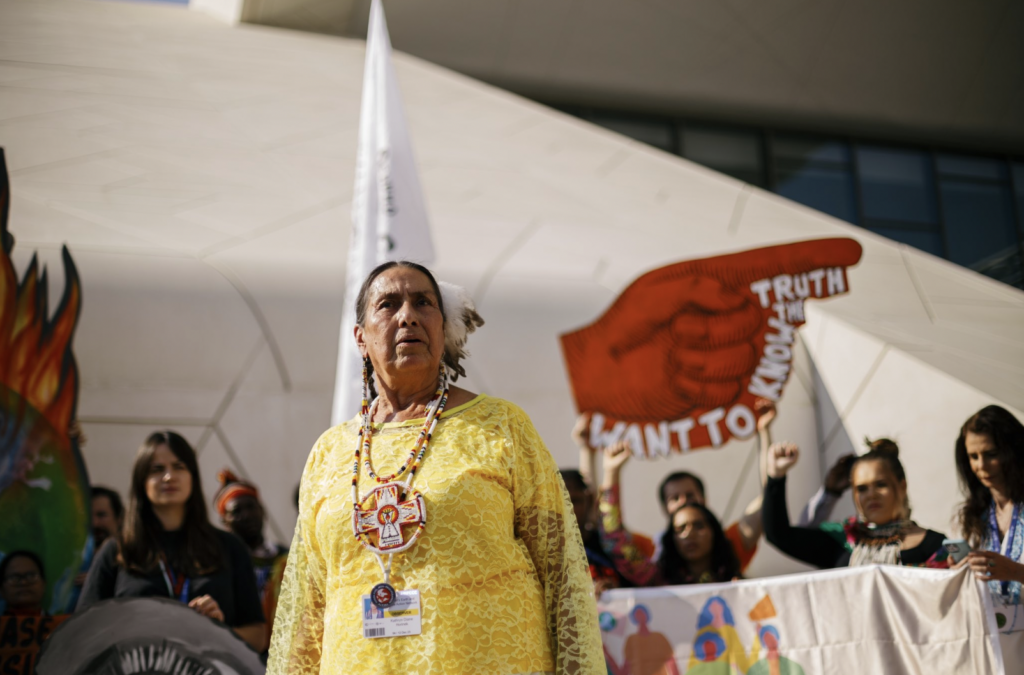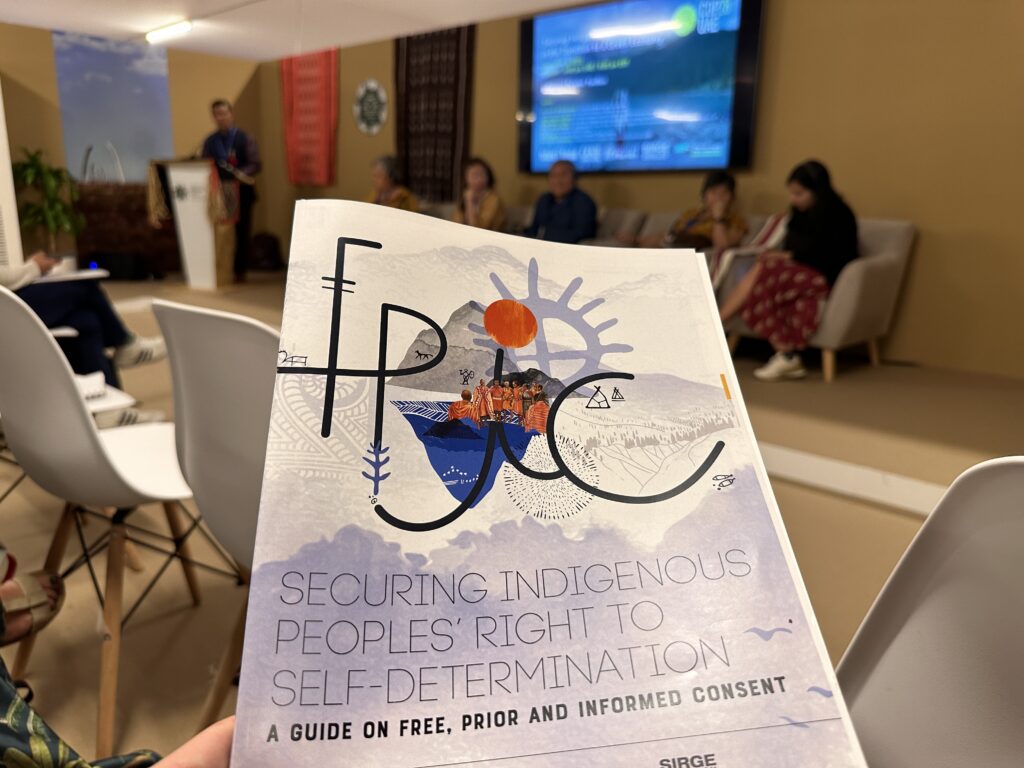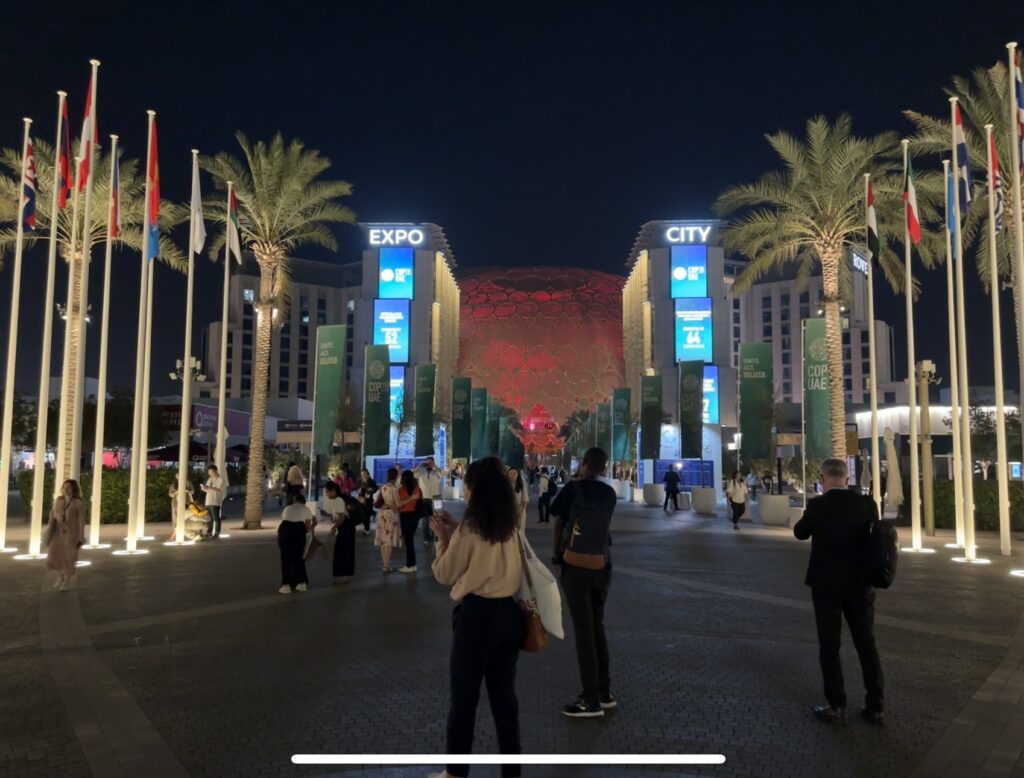Tomorrow, Expo City in Dubai, where the global climate conference is being held, will be closed. Day 8 will be a ” break day” for COP28 participants.
So, where do things stand right now on the big phase-out question?
Jean Su, the Energy Justice Program Director at the Center for Biological Diversity, lays it out like this:
Three blocks of countries are fighting over what commitment world leaders will ultimately make.
- The worst outcome from China, India & Arab Countries: no phase-out commitment,
- The not-good-enough outcome from the US and others: a commitment to phase-out but only for “unabated” fossil fuels (we’ll get to what this means in a moment); and
- The best outcome from low-lying and Southeast Asian nations & even the European Union: a clean and full phase-out of fossil fuels.
So, when activists and advocates return on Friday, they will direct their focus at pressuring the US to use its leadership role to throw its lot in for the best outcome commitment by world leaders at COP for a full phase-out of fossil fuels.

Make no mistake. The fact that we are at this point is a major victory. This is the COP where phasing out fossil fuels is on the table!!! Now, the focus has moved to the word “unabated” as the key issue for Week 2.
Unabated? Huh? Generally, an “unabated phase-out” allows fossil fuel companies to keep expanding and devastating our climate so long as they try to use false solutions and unproven technological fixes, such as Carbon Capture and Storage, to pollute less. Talking about polluting less isn’t enough, not with this industry’s track record of lying and not cutting harmful pollution to date.
Specifically, which “unabated” fossil fuel projects would we be phasing out? Um, well…no one seems to be sure. Earthworks Senior Policy Advocate Kelsey Crane reported from meetings so far that “no official from the US delegation can seem to define for us exactly what ‘unabated’ means.”
On transition minerals. Advocates and Indigenous leaders continued to raise the demand that Indigenous People and those most impacted by mining for transition minerals be part of the decision-making at COP28. Many of today’s discussions centered around transportation.
Here, an important point was raised repeatedly: with what we know of the harms from transition minerals mining, we cannot replicate past mistakes as we move towards a clean energy future. In the context of growing demand for electric vehicles, we must use demand reduction strategies with lower overall material and energy costs that are pursued in tandem with recycling. This includes developing and implementing policies to disincentivize private car ownership and making forms of active and public transport more accessible.
Bottomline: we need better clean energy solutions and we need better practices for Free, Prior, and Informed Consent (FPIC) of projects on or near Indigenous lands..

Wait, what is FPIC? In 2007, the United Nations called for universal consent adoption from Indigenous communities before starting a project. FPIC is the foundation for socially and environmentally sound practices for mining operations worldwide. In response to growing pressure, mining companies are starting to acknowledge new expectations of rights protections.
FREE: Consent obtained must be freely given without coercion, manipulation, or bribes.
PRIOR: A company must obtain consent from the affected community before starting operations. This means communities can oppose a project and prohibit its development.
INFORMED: Full disclosure of information regarding all aspects of a proposed project or activity in a manner that is accessible and understandable to the people whose consent is being sought.
CONSENT: A company must inform community members of a project’s positive and negative impacts before seeking consent.
Read more about it here.
…And now that wraps it! Our day-to-day blog coverage of COP28 ends today. But keep following us on Twitter, Facebook, and Linked In over the coming days, where we’ll keep posting voices making a huge difference, fighting for what’s right at the global climate conference in Dubai, UAE.

